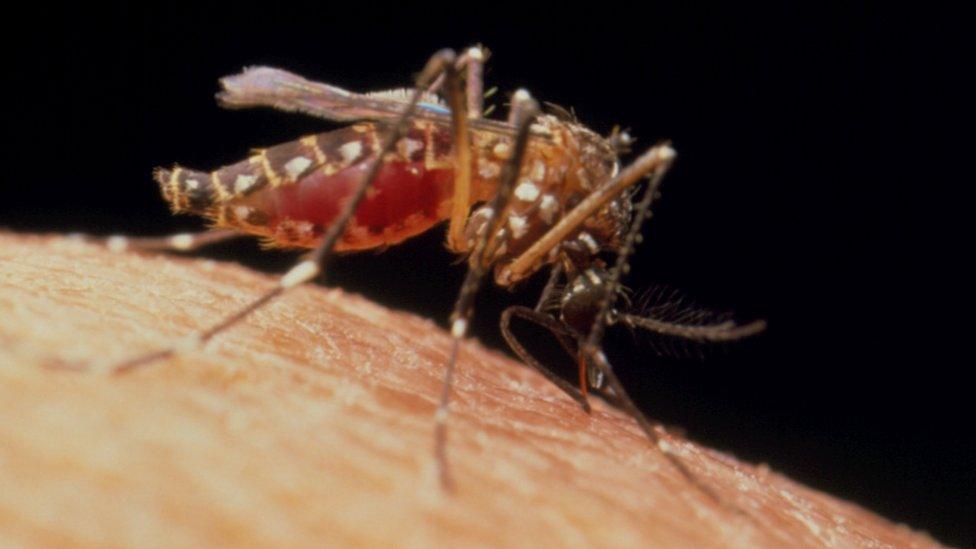Zika: Singapore urges tests for pregnant women with symptoms
- Published
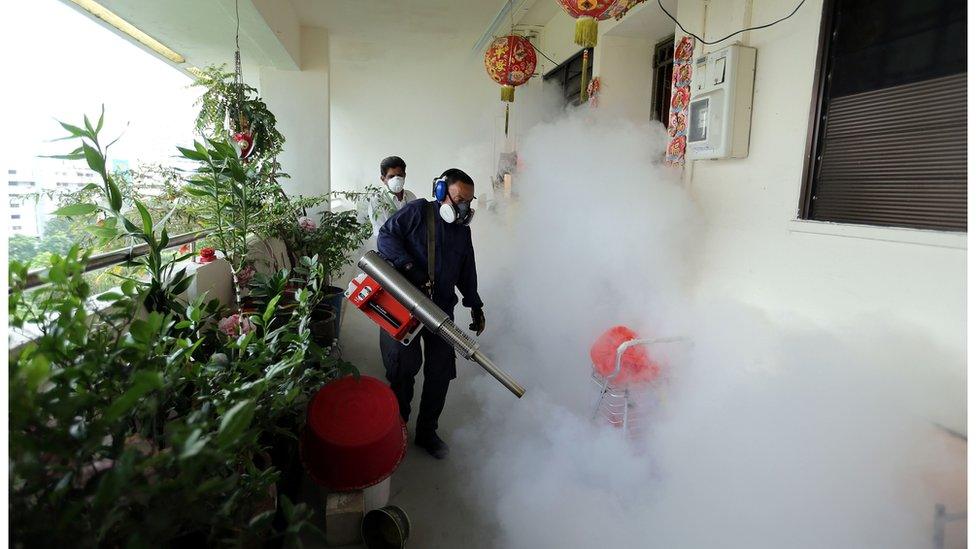
Fogging is being carried out across the city-state
Singapore is advising all pregnant women with symptoms associated with Zika, to be tested for the virus.
The city-state has now confirmed 82 locally transmitted cases of Zika, a mosquito-borne virus linked to severe birth defects.
It has initiated a drive to wipe out mosquitoes in affected areas.
On Tuesday, the US joined Australia, Taiwan and South Korea in advising pregnant women against non-essential travel to Singapore.
The latest global Zika outbreak originated in Brazil last year, but has since spread across the Americas.
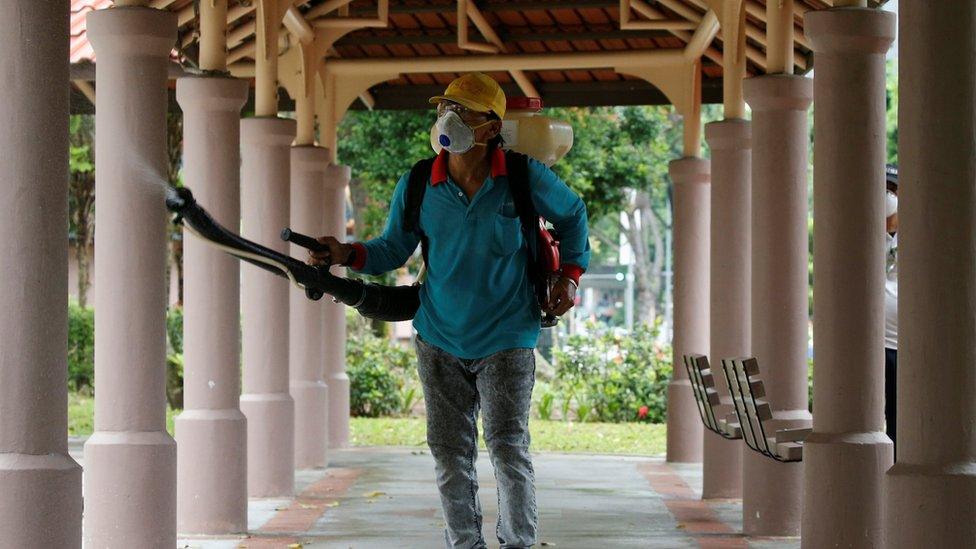
Workers are also spraying insecticide in areas vulnerable to mosquitoes
Dozens of cases have been confirmed in Singapore over the past week, some outside the original cluster amongst migrant construction workers in the Aljuneid district in the south-east.
This has sparked concern that the numbers could escalate sharply.
The health ministry has advised pregnant women, external with symptoms such as fever, rash, red eyes and joint pain, to get tested.
It also said women with male partners who are Zika-positive, should be tested "regardless of whether they have been to Zika-affected areas" and even if they have no symptoms themselves.
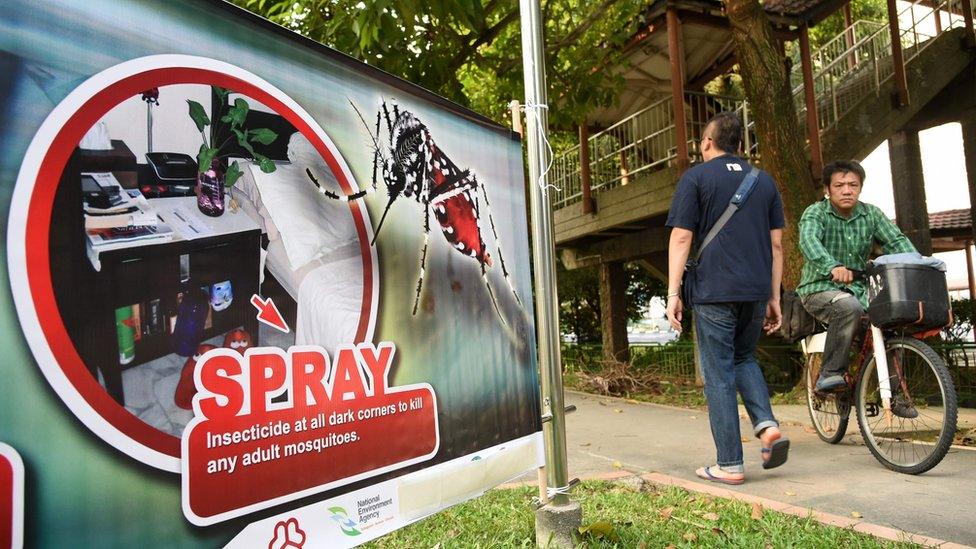
The government has also advised the public to use insecticide and repellents against mosquitoes
Testing for such women will be provided free, but it "is not routinely recommended for other pregnant women".
Meanwhile workers have been fumigating public areas across the country and existing home inspections for possible mosquito infestation have been stepped up. Sales of insect repellent and insecticide are reported to have increased.
While Zika mostly causes relatively mild symptoms, it is particularly dangerous for pregnant women because it is thought it can cause microcephaly, in which babies are born with abnormally small heads and underdeveloped brains.
The World Health Organization, external (WHO) is advising pregnant women not to travel to areas with ongoing Zika virus outbreaks.
However, many governments, including the UK's, external, are advising women who are pregnant or planning to be, to speak to their doctors about any plans to go to Zika-affected areas, and take precautions against being bitten by mosquitoes once there.
- Published31 August 2016
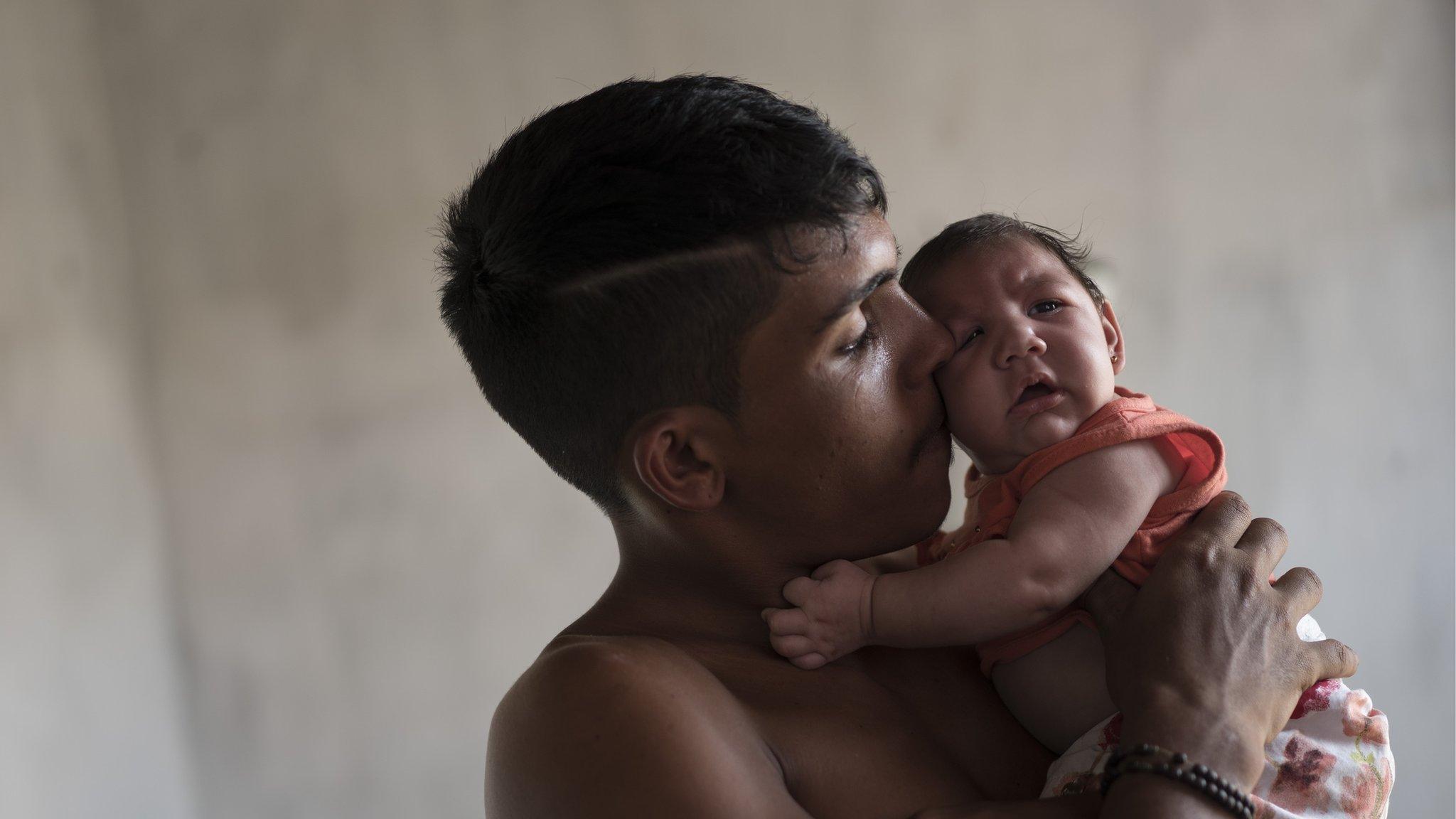
- Published3 February 2016
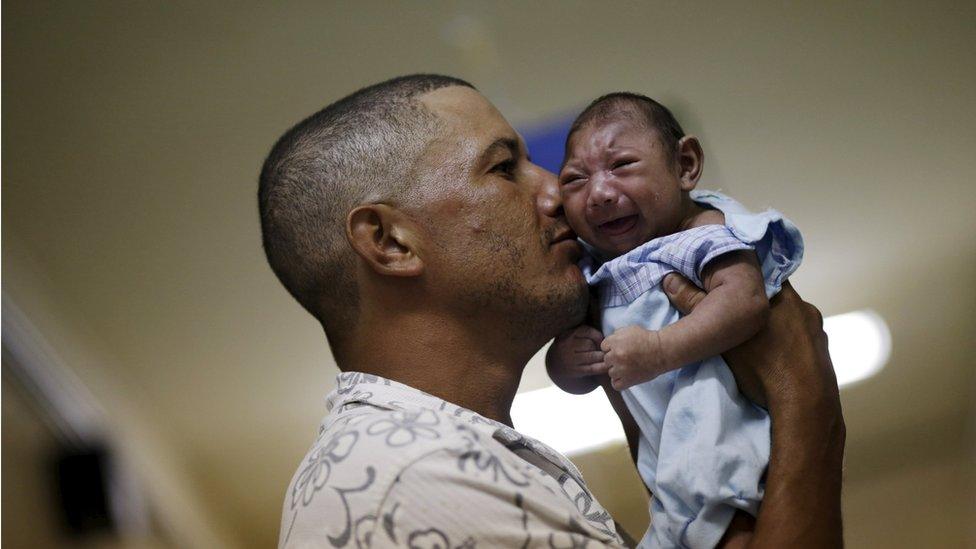
- Published28 January 2016
